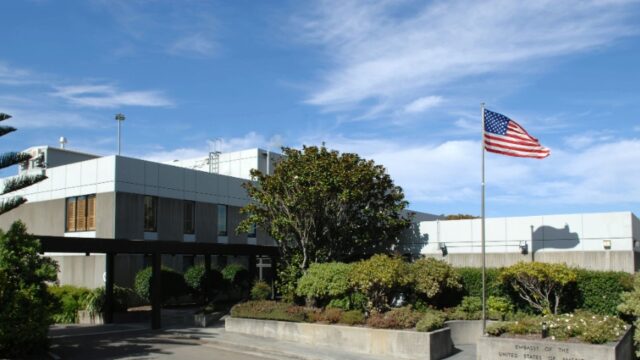
U.S. Embassy Wellington, New Zealand
New Zealand is a strong, steadfast partner and friend of the United States. The U.S. diplomatic presence in New Zealand dates back to the commissioning of the first U.S. Consul in 1838. Formal diplomatic relations were established in 1942, following the United Kingdom’s recognition of New Zealand’s domestic and external autonomy within the British Empire. During World War II, U.S. military personnel were stationed in New Zealand to prepare for battles such as Guadalcanal and Tarawa. The United States and New Zealand share common elements of history and culture and a commitment to democratic principles and the international rules-based order.
Commercial ties between the United States and New Zealand are robust and growing. Two-way goods trade between the United States and New Zealand totaled $10.8 billion in 2020, with U.S. goods exports to New Zealand totaling $5 billion and imports totaling $5.7 billion. U.S. trade in services (exports and imports) with New Zealand totaled an estimated $3.4 billion in 2020. Services exports were $1.8 billion; services imports were $1.5 billion. New Zealand was the United States’ 47th largest goods export market in 2020. The U.S. goods trade deficit with New Zealand was $1 billion in 2020. The U.S. services trade surplus with New Zealand was $332 million in 2020.
Today, the U.S. embassy is located in Wellington and also is accredited to Samoa. The United States also operates a consulate in Auckland.
Map Link:
Source:
United States Department of State, Office of the Historian and Bureau of East Asian and Pacific Affairs
Social Links:
https://www.facebook.com/newzealand.usembassy
Related Links:
U.S. Embassy and Consulate in New Zealand, Cook Islands, and Niue